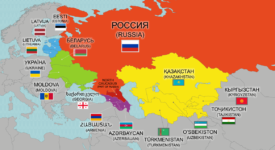The European Union has condemned a death sentence that was handed down earlier this week in Belarus to Mr Kiryl Kazachok. This sentence is the fifth in a row after the country executed four persons this year. The EU reminded that this goes against the commitments made by Belarusian authorities to consider the introduction of a moratorium on the death penalty.
Mr Kiryl Kazachok was sentenced on Wednesday (29 December) to death for murdering his two children. A judge found Mr. Kazachok guilty of strangling his 17-year-old son Uladzislaw and nine-year-old daughter Kira at their home in Mazyr on January 31, 2016. According to the prosecution, the man killed his children to take revenge on his wife who filed for divorce in October 2015. Mr. Kazachok had previously been convicted of disorderly conduct and physical violence.
The European Union opposes capital punishment in all cases. The EU sees death penalty as an insufficient and inappropriate tool to deter crime, which moreover represents an unacceptable denial of human dignity. The EU called on Belarus, the only European country still applying capital punishment, to join a global moratorium on the death penalty as a first step towards its abolition. The EU also said in its official statement that steps taken by Belarus to respect universal fundamental freedoms, rule of law and human rights, including on the death penalty, would remain key for the shaping of the EU’s future policy towards the country and the mutual ties.
According to Human Rights Watch, there has been almost no improvement in the country’s human rights record except for the fact that in 2015 President Alyaksandr Lukashenka released on humanitarian grounds six opposition figures who had been imprisoned on politically motivated charges. The advocacy says that on top of the death penalty that is still being used, officials’ pressure and arrest human rights activists and critics on sham charges and authorities regularly harass independent and opposition journalists. Moreover, freedom of expression, in particular Internet freedom, is still heavily restricted.







